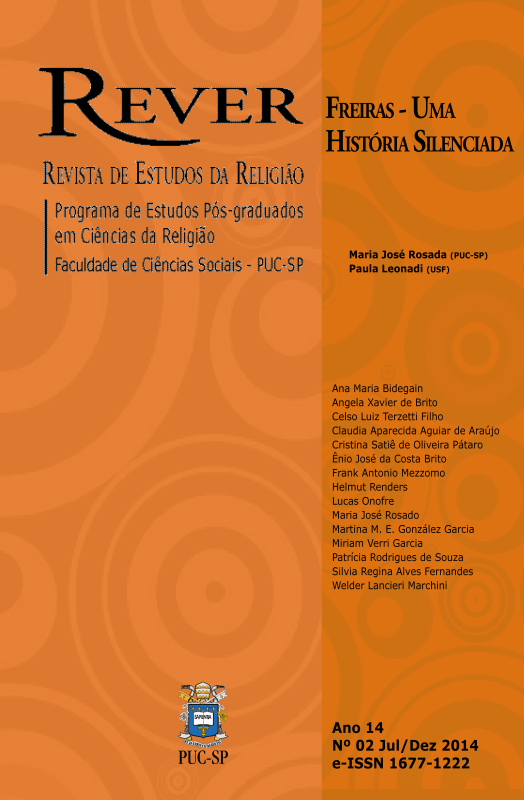Os meandros dos processos de conversão. Trajetórias de dois judeus convertidos ao catolicismo no século XIX
Palavras-chave:
narrativa biográfica, complexidade, grupo de referência, conversão ao Catolicismo, ultramontanismoResumo
O relato biográfico parece ainda ser o método sociológico que permite melhor restituir acomplexidade do real dentro de uma perspectiva histórica, desde que associado à construçãosociológica do campo em que se insere. O presente artigo, baseado em fontes primárias, buscaanalisar as trajetórias de Théodore Ratisbonne e Jacob Libermann, dois judeus convertidos aoCatolicismo no século XIX. Oriundos da mesma região, mas de origens sociais opostas, ambosinterpretam seu itinerário à maneira de todo convertido: uma vida prévia insignificante, aintervenção divina que os resgata do erro, a iluminação trazida pela religião, o batismo. No início,ambos adotam a perspectiva do grupo de referência ao qual aspiram pertencer, no intento deadquirir as disposições e os capitais necessários ao enquadramento de sua crença. Mas, aofrequentar meios diferentes, eles vão interpretar de maneira bastante oposta a herança querecebem. Um conformismo estrito à regra e à hierarquia faz de Ratisbonne um ultramontanointegrista; ao passo que Libermann, educado em meio integrista, aspira por nuances, busca pensarpor si mesmo e segue uma linha liberal na condução da congregação que fundou.Métricas
Carregando Métricas ...
Downloads
Publicado
2014-12-31
Como Citar
Brito, A. X. de. (2014). Os meandros dos processos de conversão. Trajetórias de dois judeus convertidos ao catolicismo no século XIX. REVER: Revista De Estudos Da Religião, 14(2), 172–212. Recuperado de https://revistas.pucsp.br/index.php/rever/article/view/21749
Edição
Seção
Seção Temática
Licença

Este trabalho está licenciado sob uma licença Creative Commons Attribution-NonCommercial 4.0 International License.
Autores que publicam nesta revista concordam com os seguintes termos:
- Autores mantém os direitos autorais e concedem à revista o direito de primeira publicação, com o trabalho simultaneamente licenciado sob a Licença Attribution-NonCommercial 4.0 International, que permite o compartilhamento do trabalho com reconhecimento da autoria e publicação inicial nesta revista.
- Autores têm autorização para assumir contratos adicionais separadamente, para distribuição não exclusiva da versão do trabalho publicada nesta revista (ex.: publicar em repositório institucional ou como capítulo de livro), com reconhecimento de autoria e publicação inicial nesta revista.


